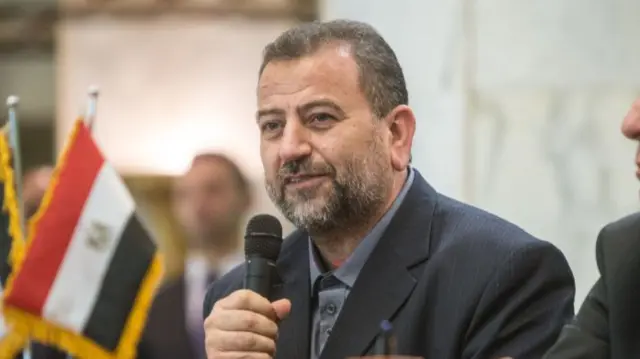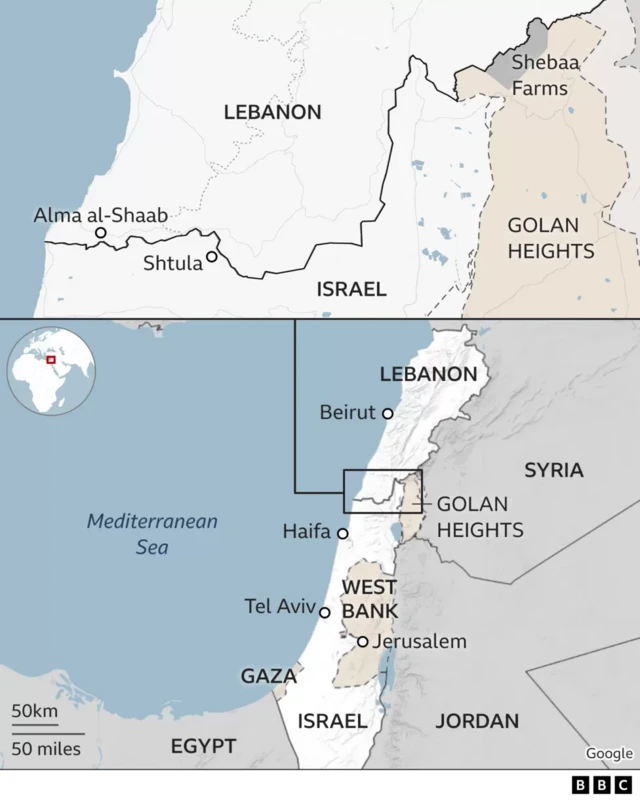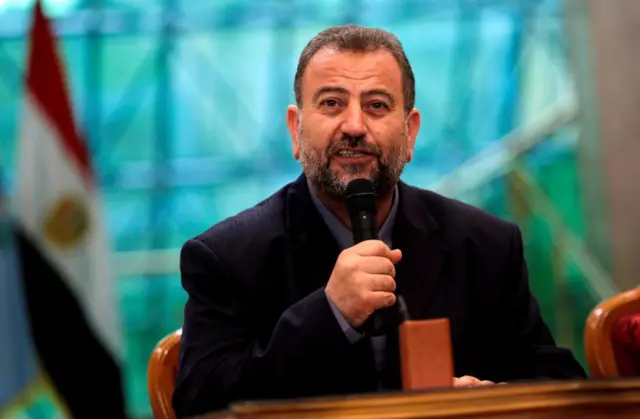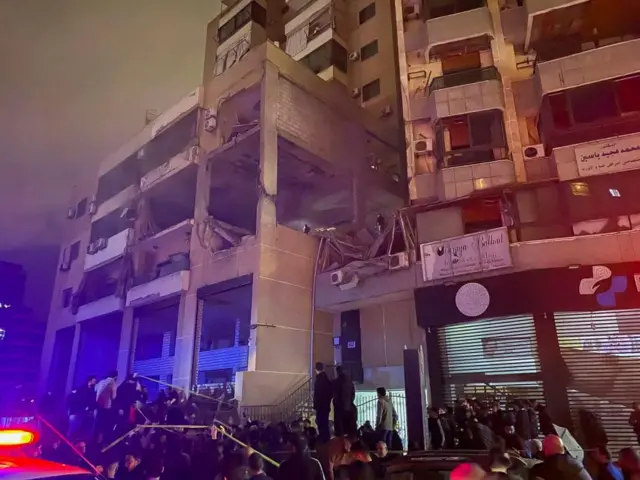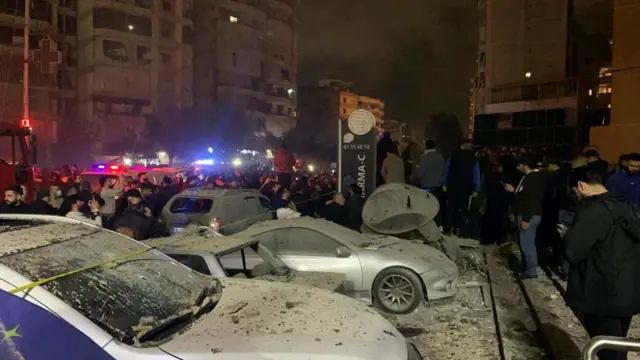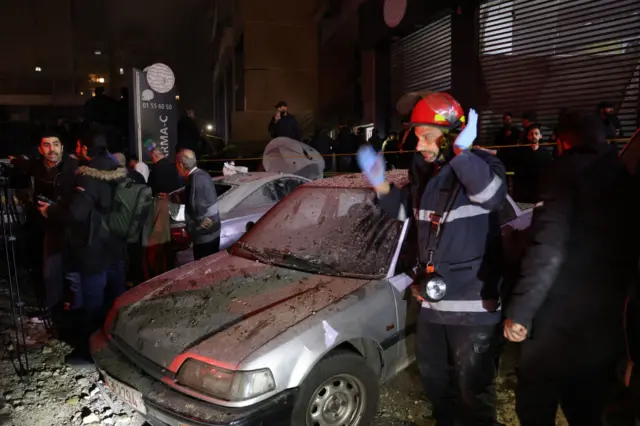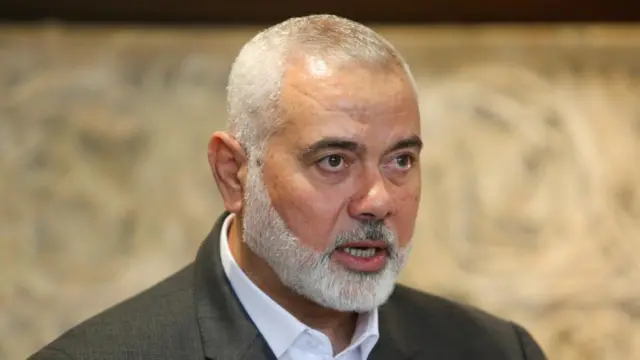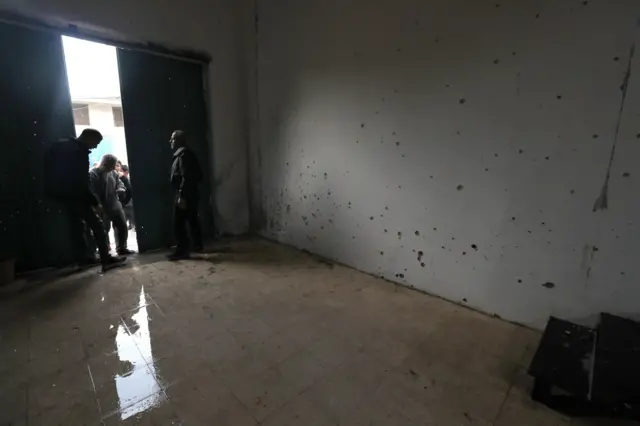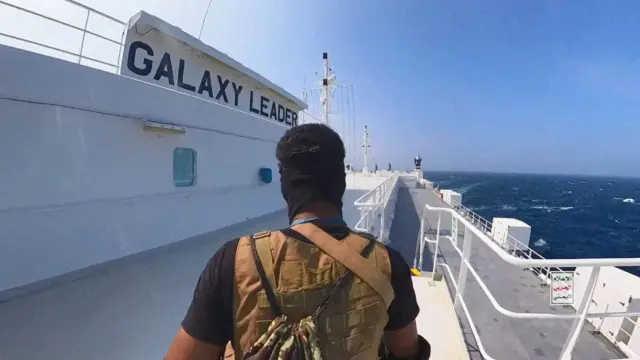
Killing Hamas leader in Lebanon carries risks for Israelpublished at 19:54 GMT 2 January 2024
 Paul Adams
Paul Adams
Diplomatic correspondent
On the face of it, there is no doubt that Israel was responsible for killing Saleh al-Arouri.
Senior government adviser Mark Regev’s use of the phrase "whoever did this" when speaking to US broadcaster MSNBC was redundant.
His insistence that "this was not an attack on the Lebanese state" makes clear that Israel is anxious to persuade the world - and especially the authorities in Beirut - that the operation was integral to Israel’s feud with Hamas, not part of some wider interference in Lebanon’s internal affairs.
Israel’s former ambassador to the UN, Danny Danon, dispensed with fig leaves altogether and congratulated the Israeli military and intelligence services for their roles.
But while Israel had a very specific target in its sights, killing a senior Hamas official in the Lebanese capital clearly carries risks.
The fact the assassination was carried out in the Hezbollah stronghold of Dahiyeh may be hard for the powerful Shia militia to ignore.
In August, Hezbollah’s leader, Hassan Nasrallah warned of a "severe reaction" to any Israeli assassination carried out on Lebanese territory.
Hezbollah and the Israeli military have been exchanging fire along Israel’s northern border for months, but the skirmishes - while occasionally deadly - have been generally limited.
Nasrallah called the war in Gaza a "purely Palestinian battle" in a speech in November, but the assassination of a significant Palestinian guest in his own back yard means that some kind of reaction, somewhere, is likely.
